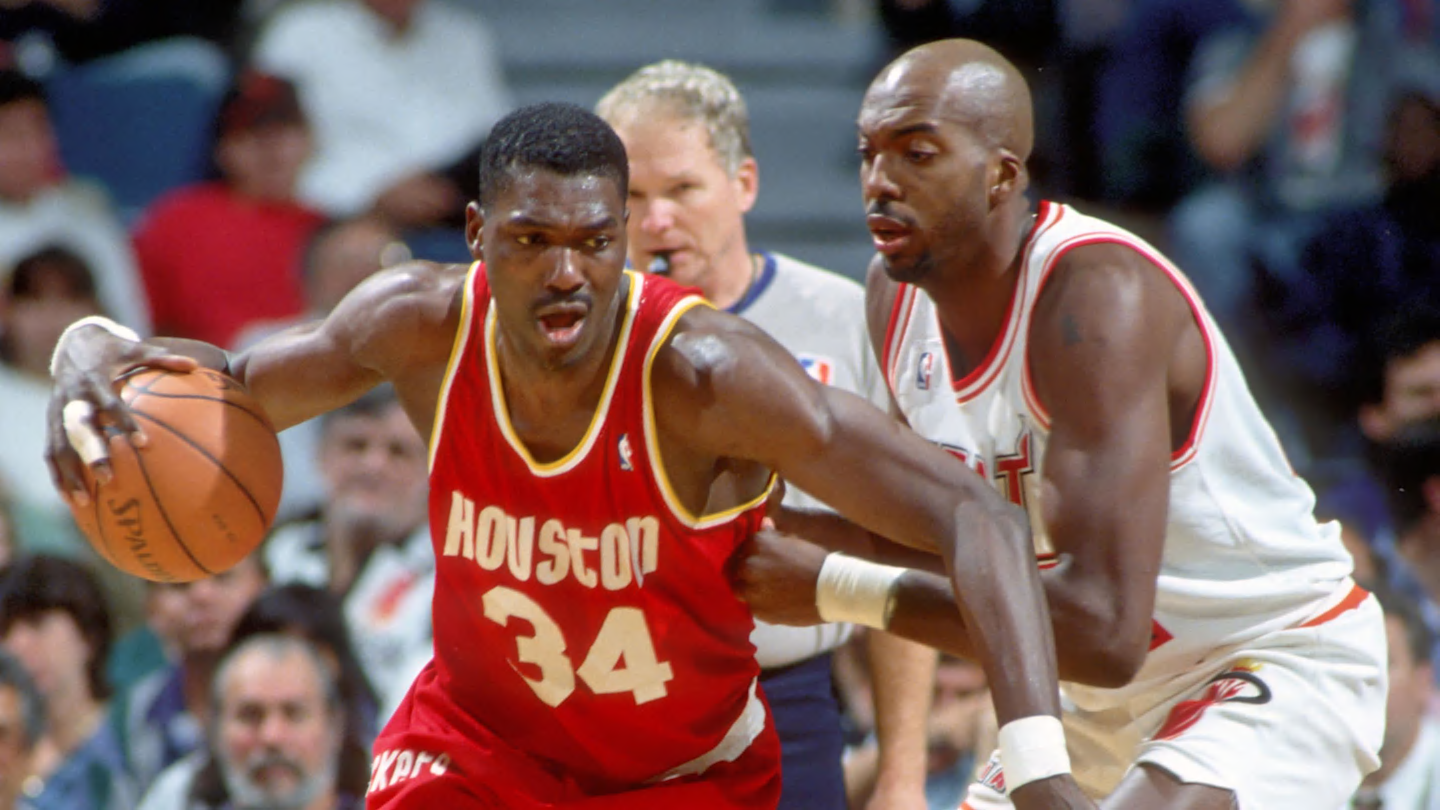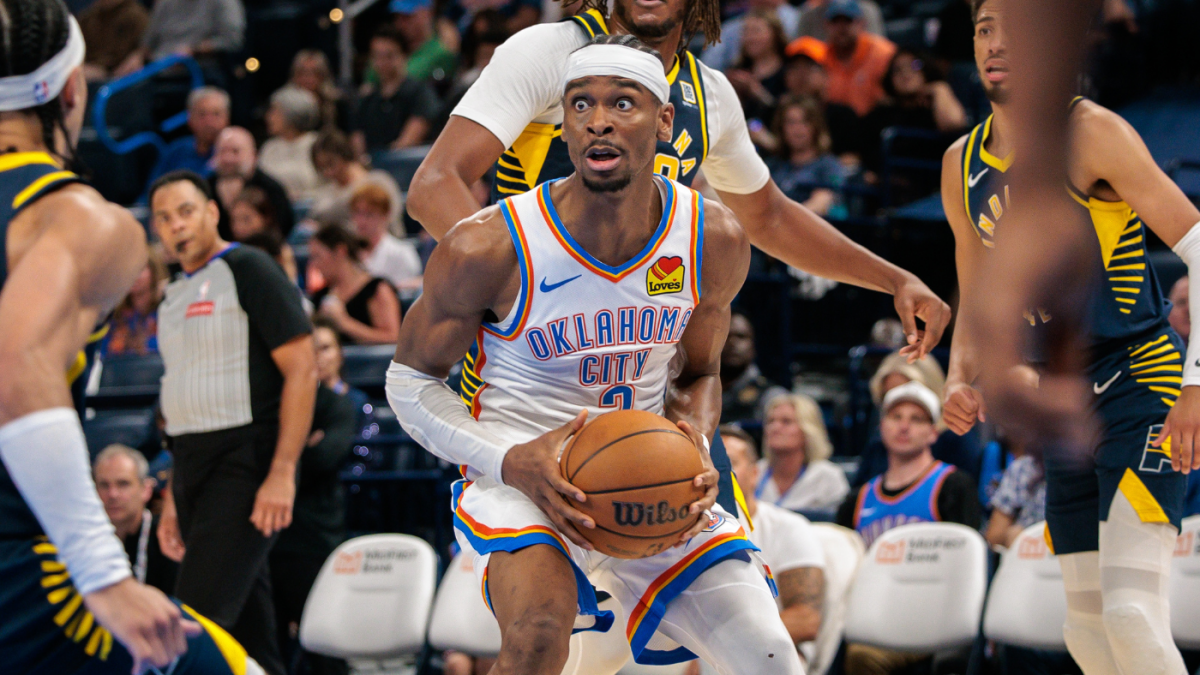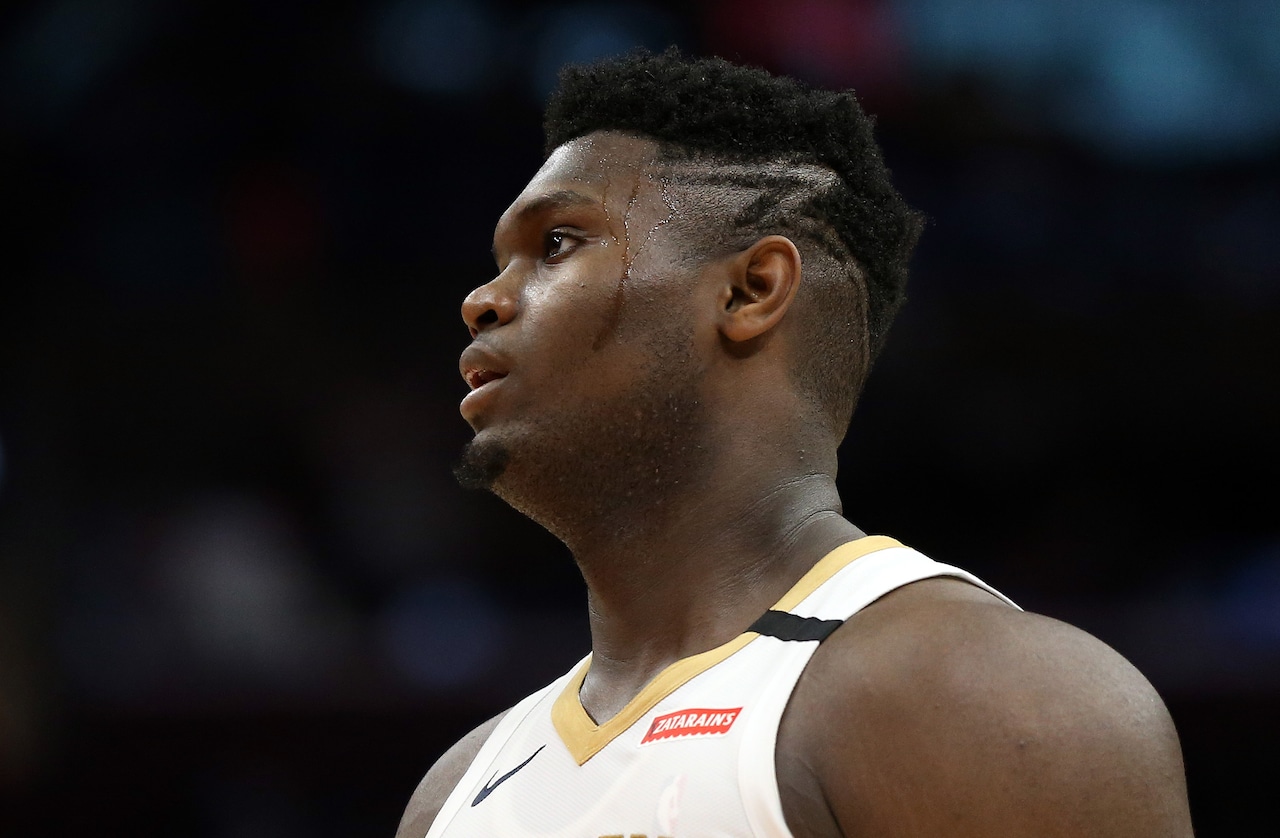
Throughout the history of the NBA, the top-end teams tend to bring home the gold. In fact, out of 78 NBA champions, 68 of them have either been a No. 1 or No. 2 seed. Just eight No. 3 seeds have won the Finals, along with one No. 4 seed.
A team seeded No. 5, 7 or 8 has never won a championship.
Just one No. 6 seed has: The 1995 Houston Rockets.
The story of the 1994–95 Houston Rockets, simply put, is one of resiliency. The team entered the season as the defending NBA champions, but limped to the finish line as the No. 6 seed in the Western Conference.
As they entered the playoffs, the Rockets faced a murderer’s row of opponents which included five players who received NBA MVP votes.
In the end, the Rockets would overcome the odds, earn the nickname ‘Clutch City’ and go back-to-back.
Houston returned most of the core from the previous season’s championship team. Hakeem Olajuwon was the reigning MVP and Defensive Player of the Year. Robert Horry, Sam Cassell, Kenny Smith and Otis Thorpe were all back as well.
With those pieces in place, most expected the Rockets to be among the favorites to win the championship. Those beliefs were only strengthened when Houston jumped out to a 9-0 start to the year.
But things took a turn for the worse.
By the end of January the Rockets were 26-15. The team was dealing with some internal strife as injuries and role changes were producing some less-than-ideal chemistry. Perhaps the biggest issue was Thorpe clogging the middle, preventing Olajuwon from operating in the paint the way the team needed him to.
Feeling like the team’s window might be slamming shut, GM Bob Weinhauer swung for the fences and completed a massive trade.
On Valentine’s Day 1995 the Rockets sent Thorpe, Marcelo Nicola and a first-round pick to Portland for Clyde Drexler and Tracy Murray.
Now, Thorpe might have been muddying the paint on the court, but for a locker room that was struggling in the chemistry department, a trade this big was risky.
That risk showed plenty of times throughout the rest of the regular season. Depsite Drexler and Olajuwon being close friends (remember, they starred on the Phi Slamma Jamma Houston Cougars teams in college) and Drexler averaging 21.4 points per game for the Rockets, Houston never really went on a run.
The Rockets finished the regular season with a 47-35 record, entering the playoffs as the No. 6 seed in the West.
But the Rockets were no ordinary sixth seed.
Houston’s playoff run began with the Utah Jazz. Utah, led by Karl Malone (3rd in MVP voting) and John Stockton (8th), had home-court advantage, but it didn’t matter.
The Rockets’ championship experience, coupled with Olajuwon’s stellar play, pulled them over the hump.
The decisive Game 5 saw Olajuwon and Drexler combine to score 64, securing the win. After ending the regular season with three-straight losses, this was the first true sign of life for the defending champs.
In the semifinals the Rockets faced the Phoenix Suns. The season prior, Phoenix took a 2-0 lead in the playoffs on Houston and it seemed like things were coming to an end for the reigning champions when the Suns and Charles Barkley (6th in MVP voting) took a 3-1 lead.
But then the comeback started and the ‘Clutch City’ monicker was earned.
The Rockets came back from a double-digit second-half deficit in Game 5 on the road before returning to Houston and crushing Phoenix in Game 6. Then it all came down to Game 7.
In that game, the two teams traded blows back and forth throughout the night. With 7.1 seconds remaining and game tied, Rockets guard Mario Elie nailed a three-pointer from the corner, which he dubbed the ‘Kiss of Death,’ sending Phoenix packing.
This is where most thought that Houston was reaching the end of the line.
The No. 1 seed San Antonio, led by David Robinson (the 1994-95 NBA MVP), were the favorites to head to the NBA Finals.
But Olajuwon didn’t care.
Taking some umbrage with Robinson being named MVP, Olajuwon dominated the series. He averaged 35.3 points (on 56% shooting), 12.5 rebounds, 4.2 blocks and 5.0 assists across six games, advancing Houston to the NBA Finals.
Having reached the Finals for a second-straight year, the Rockets were staring at a team that many considered to be the future of the NBA: the Orlando Magic.
The team was young, fast and scored in droves (Orlando led the league in points per game). Orlando was led by Shaquille O’Neal and Penny Hardaway, who combined to average more than 51 points per game. O’Neal was second in MVP voting, despite being in just his third season.
And for a while, it looked like the future was now. Orlando led by as many as 20 points in Game 1, but Houston rallied to force overtime. From there, the Rockets never looked back.
Houston completed the comeback in Game 1, then won Game 2 behind 34 points from Olajuwon, 31 from Cassell and 23 from Drexler. Game 3 was tight in Houston, but the Rockets prevailed and then slammed the door on Orlando in Game 4.
Back-to-back titles for Houston, back-to-back Finals MVP Awards for Olajuwon.

